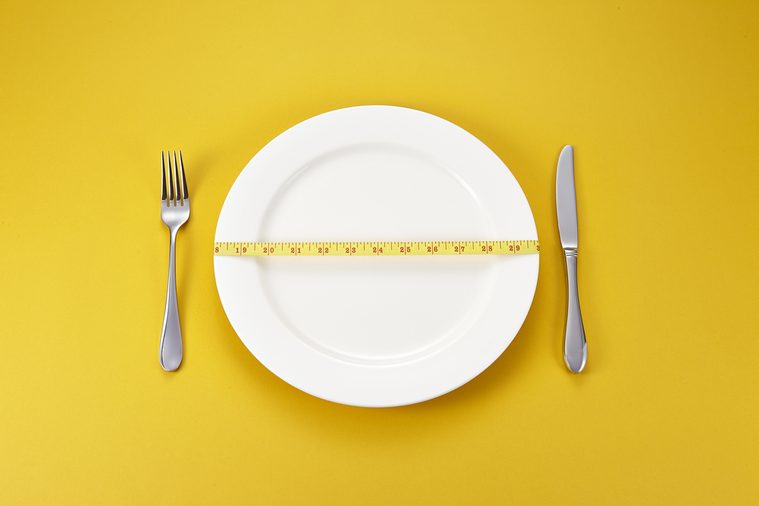Here’s Exactly How Long You Need to Diet to Lose Weight—and Keep It Off
Updated: Oct. 08, 2018
Finally, science has an answer to the question that consumes every person trying to achieve and maintain a healthy weight: How long do I have to diet to see lasting results?

As anyone who has tried to lose weight knows, strict diets often don’t work as promised. But the secret to success might be simpler than you think. Just try sticking it out for a year, according to a recent study published in the International Journal of Obesity.
Researchers from the University of Copenhagen spent nearly two years studying the ways that weight loss affects our bodies. The trouble with most restrictive diets, they say, is that they usually lead to a surge in hunger-causing hormones. “It’s a perfectly natural method to preserve life—if we don’t eat, we die,” Signe Sorensen Torekov, PhD, associate professor of biomedical sciences at the University of Copenhagen, told BBC Radio 4. “That’s why this hunger sensation is so strong.” If you’re starting a fitness program, be sure to follow these 12 workout rules for beginners.
But when those hunger hormones tempt you into bad eating habits, they can also cause the most well-intentioned weight-loss plans to backfire. Could there be a trick to keeping the pounds off for good? To find out, the researchers assigned 20 obese people to a strict, low-calorie diet for eight weeks, followed by a 12-month weight-maintenance program. During that period, participants regularly met with a clinical dietitian and discussed tips on lifestyle changes and diet-calendar tracking. Read about 50 weight-loss breakthroughs your doctor wishes you knew.
The research team collected blood samples from the participants three times during the process: before they started to lose weight, after the eight weeks of dieting, and one last time after the 12 months on the weight-maintenance program. Overall, the participants lost 13 percent of their body weight on average. But here is the best part: By the end of the 12 months, blood samples showed that their bodies were producing less of the hunger-causing hormone ghrelin and more of a hormone called GLP-1, which suppresses appetite. Try these 42 fast, simple weight-loss tips.
“Most studies show when you lose a lot of weight, then your body fights fiercely against it,” Torekov told Radio 4. “But we actually found if you are able to keep your weight down for this longer period, then it seems to adapt to this new set point.” In other words, dieting for one year allows your body to get used to its new weight, which stops your cravings and helps you maintain the weight loss.
For the best weight-loss results, experts recommend finding a healthy, balanced lifestyle that you can follow for the long term. Get started by trying these 50 ways to lose weight without a lick of exercise.